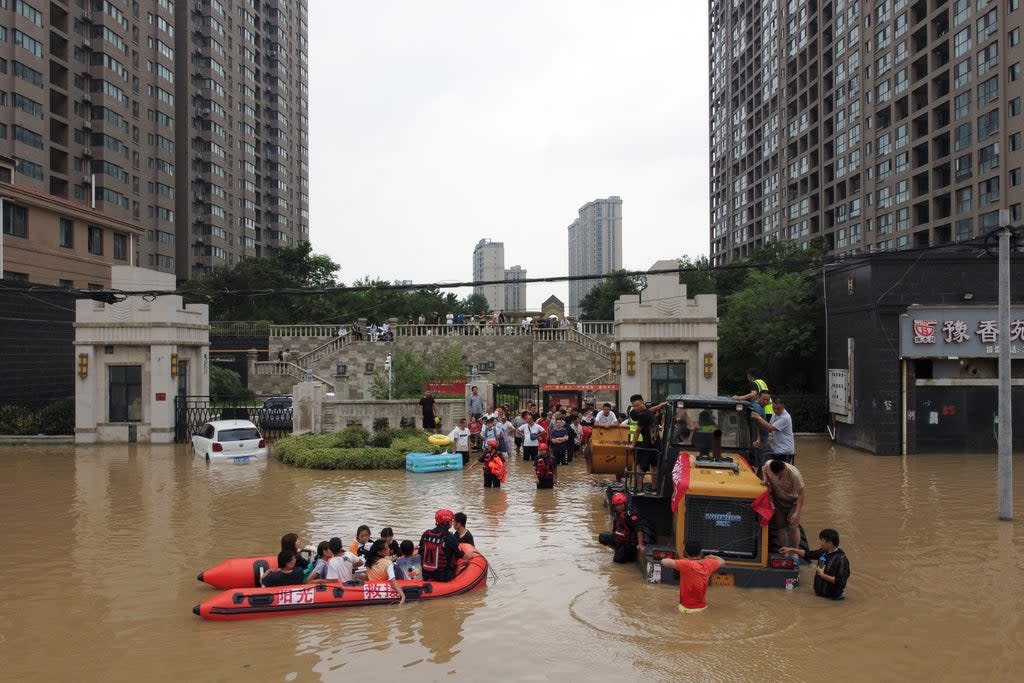China flooding: Tens of thousands evacuated as death toll rises to 33

Tens of thousands of people have been evacuated in China as authorities launched a massive rescue operation after heavy rains lashed the central Henan province.
On another day of heavy rainfall, the death toll rose to 33 on Thursday and at least eight people are missing as torrential downpours flooded low places and train stations, leaving passengers stranded.
The province’s local emergency management bureau said a total of 376,000 people had been safely evacuated and the rains have already caused an economic loss of 1.22 billion yuan ($189 million or £137 million) by affecting 215,000 hectares of crop land, according to state-run media reports.
President Xi Jinping said authorities should prioritise people's safety and property.
The fatalities included 12 people who were killed in Zhengzhou city, the capital of Henan province, when a subway tunnel flooded this week. The city saw 617 mm of rain fall over a three-day period, according to Xinhua.
The floods have caused widespread damage and disruptions to transport services. At least 10 trains in the province were halted and parts of highways were closed due to the rain.
Significant rainfall is predicted for parts of Henan on Thursday.
The provincial weather bureau has raised an alarm for four cities — Xinxiang, Anyang, Hebi and Jiaozuo — in the north of Henan, according to Reuters.
Authorities have dispatched over 1,800 firefighters to the flood-hit areas to help with rescue work and repair damaged communication lines.
People in China have turned to social media to coordinate relief efforts and provide support. On Weibo, China’s Twitter-like social media platform, users are redirecting posts seeking help to emergency teams and sharing up-to-date lists of emergency numbers, according to the BBC.
Hashtags encouraging those affected to stay strong have also gone viral on Weibo, the report said.
The floods in China, so soon after disastrous floods in Germany last week, have focused further attention on climate change and the need to prepare for such events.
"Governments should first realise that the infrastructure they have built in the past or even recent ones are vulnerable to these extreme weather events," Eduardo Araral, associate professor at Singapore's Lee Kuan Yew School of Public Policy, told Reuters.

 Yahoo News
Yahoo News 
